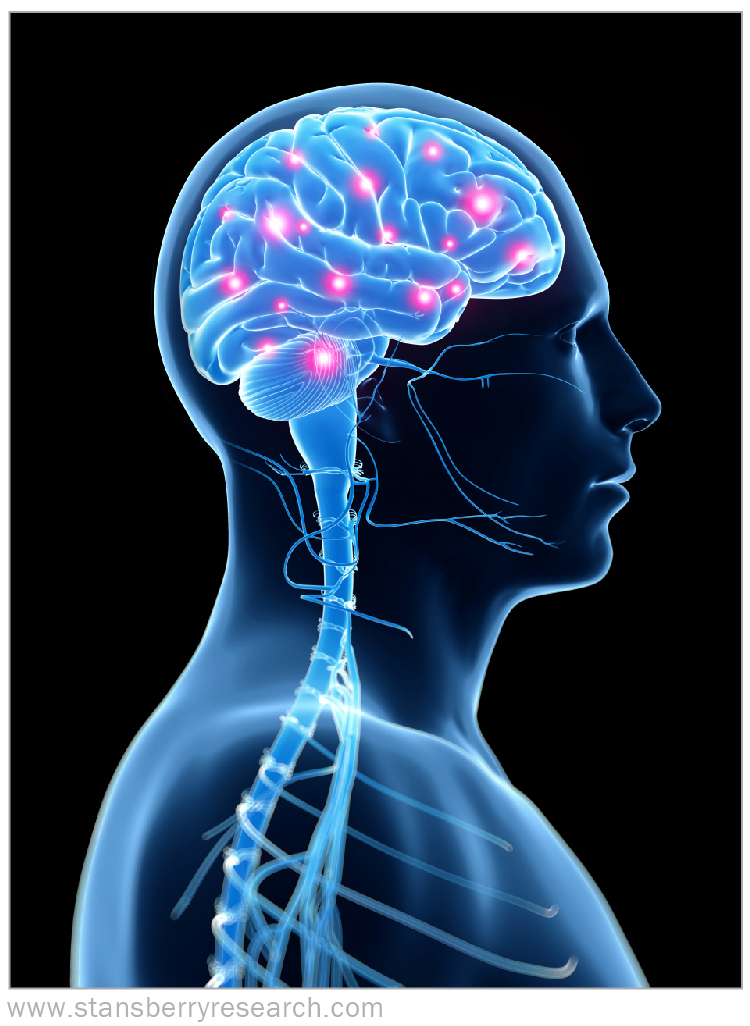Fake it till you make it...
You've heard that before. And you've probably put it into practice without even realizing it.
Take a moment and think back to a time when you talked yourself into trying something you didn't want to do at first or were afraid to do. For example, a presentation at work. Maybe you were nervous to stand in front of your coworkers and present your ideas (think of that butterflies-in-your-stomach feeling), but you pushed past the fear and did it anyway. If you had to keep speaking in front of folks, chances are that eventually something shifted in your brain or your body that allowed you to enjoy the presentation and really excel at it.
Ever wonder why this adage works?
It turns out, when your thoughts change, your brain also physically changes.

Mental activity creates new neural connections and structures in the brain. This is called neuroplasticity, and it helps your brain restructure and rewire itself when it recognizes the need for adaptation.
Neuroplasticity is necessary for any healing or rehabilitation process. It's so transformative that it has even allowed people who were paralyzed to relearn to walk.
Our brains each contain approximately 100 billion nerve cells – called neurons – that send and receive messages to each other at junctions called synapses. These messages come in the form of chemicals called neurotransmitters that tell a neuron to either fire (meaning send along the signal) or not fire.
Frequent firing leads to stronger neural connections which leads to automatic thought and behavior patterns. This is how our brain shapes our mind.
Additionally, once a specific neuroplastic change occurs and becomes well established, it can prevent other changes from occurring.
So for example, if you get pleasure every time you smell a rose – one of my all-time favorite smells – eventually, just thinking about a rose will have the same effect on your mood and emotions.
This also means that we can use our thoughts to remodel our brains, our lives, and the lives of those around us.
Psychologist and author Rick Hanson wrote a book about neuroplasticity called Buddha's Brain: The practical neuroscience of happiness, love, and wisdom. In his book, Hanson talks about the concepts of virtue (living with integrity), mindfulness (concentration and clarity), and wisdom (insightfulness) as being supported by the three fundamental functions of the brain: regulation, learning, and selection.
Regulation, learning, and selection – Hanson says – operate on all levels of the nervous system and are involved in every important mental activity. Therefore, developing virtue, mindfulness, and wisdom depends on improving regulation, learning, and selection in your brain.
To develop healthy thoughts, emotions, and behaviors that happen automatically, we need to tap into our neuroplastic potential and really build that "muscle." Neuroplasticity also helps prevent age-related cognitive decline – like dementia and Alzheimer's disease.
When you want to work toward greater neuroplasticity, there are five things you need to keep in mind that will help:
- Challenge and novelty – A qualifying activity needs to be new to you and not too easy to learn. Like building muscle, your brain needs to be appropriately challenged.
- Intention – You've got to choose an activity that is meaningful to you in some way so that your participation in the activity is rewarding.
- Specific attention – Give an activity an adequate amount of attention to elicit an improvement through your practice.
- Repetition and intensity – Doing an activity once isn't going to do much. You need to do it over and over to create lasting change. And while you're at it, give it your best effort for stronger changes.
- Time – Big changes take time, so give yourself plenty of it. Carve out some time in your schedule to practice a couple times a week.
The great news is doing activities – and keeping in mind the five factors above – that elicit neuroplasticity and rewire your brain can be a lot of fun...
And look out for Thursday's issue in which we'll share seven ways to improve your brain's neuroplasticity.
What We're Reading...
- Rewiring a damaged spinal cord.
- Something different: Pilgrimages could be the next post-COVID travel trend.
Here's to our health, wealth, and a great retirement,
Dr. David Eifrig and the Health & Wealth Bulletin Research Team
July 27, 2021
